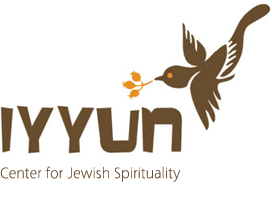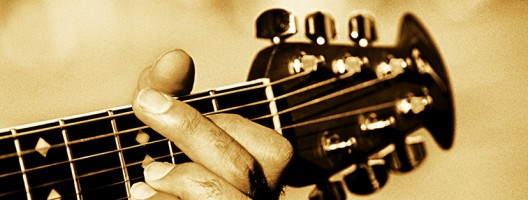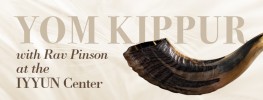From an interview in the Jewish Book News in conjunction with the release of the book Inner Rhythms: The Kabbalah of Music.
Question:
What can you tell us about your new book? Please describe its scope.
R. DovBer Pinson:
There are countless studies which have been devoted to the examination of the nature of music itself, and more specifically, the examination of the Jewish song. In ‘Inner Rhythms’ I have investigated an altogether different angle concerning (Jewish) music, namely, the human response to it. Anyone who has heard a tune knows that there is a power in music. Music has the distinct ability to stimulate a rainbow of emotion. One song can evoke joyous feelings, while another prompts sadness. Many tunes will bring us to open ourselves, yet so many will isolate us that much further. What is this incredible power found in a composition of sound? In all aspects of our lives it is present, and it was my desire in the writing of this book to unearth the music which is inherent in every aspect of life and more specifically, in the life cycle of the Jewish experience. Since music has such enormous influence, more than we can know, it behooves us to explore its nature and effect on our lives, and thus to be able to channel it in such a way that it will enrich our life experience.
Question:
You say in your book that music enhances the life experience, how is this so?
R. DovBer Pinson:
In every continent, in every age, man has used music a means to enhance and even create the moment. Music played at a wedding increases the joyous and celebratory mood, tunes sung at a funeral add to its solemnity. I feel that in addition to these more obvious and generic uses for music however, music touches each one of us quite personally and can actually change our life experience. To offer an example; there are times in most of our lives when we find ourselves alone and singing to ourselves. Be it on the long car drive, in the shower or in any other situation of solitariness. Why is it that this urge to sing seems to strike at the very moment when there is no person around to hear and enjoy it?
In Kabbalistic thought it is explained that music has the power to unveil the most inner and deep of emotions. Since, essentially a human being is a social animal, we desire and need social interaction. The Talmud goes so far as to proclaim “friends or death.†When one is lonely, this basic human need is strongly evoked. When such intense feelings are felt, the music brings them into expression and therefore, we sing. Additionally, when singing one creates the illusion that there exists a singer and a listener. In this way we share company with our own selves. We feel less alone when we sing. This is but a simple example of how we all use music as a tool for enhancing our life experience.
Question:
Beethoven said that he didn’t invent the music he wrote but rather “heard it and wrote it down†Do you think tunes exist to be “discovered†or are they invented?
R. DovBer Pinson:
I will answer you on a purely mystical level, and you may draw your own parallels, if you will.
A noted Kabbalist, R. Meir Ben Gabbai (1480- 1547) once wrote that the reason people are so affected and moved by music is because it reflects the sounds the soul was accustomed to hearing prior to its descent into this world. It is the language of above. It is for this reason that children in particular are soothed by music.
The Kabbalist takes this even further, stating that each element in this world has its tune that accompanies it, each existence with its sympathetic spiritual rhythm. There is a heavenly rhythm above that parallels the rhythm below. When one is attuned to a higher reality one can then hear these sounds which continuously emanate from nature. It is said of the Holy Maggid of Mezhrich, that his tradition was to retreat to a nearby pond each morning and remain there, deep in thought, for a short while. His disciple once stated, after the Maggid’s passing, that the Maggid stood there to hear the sounds of nature proclaiming the glory of G-d. Even the toad’s croaking was apparent to him as a song of praise.
Question:
Examining the Torah, we tend to find a close association between music and prophecy, is there in fact a connection?
R. DovBer Pinson:
Yes, indeed there is a close attachment and for numerous reasons. Traditionally, music served as an introduction to prophecy. Playing of appropriate music was used to place the prophet in a conducive frame of mind in which he could then prophesize. The energy of music is such that it was able to clear his mind and heart from all thoughts extraneous to God. It created an openness and thereby transformed the prophet’s state of mind from that of a ‘regular’ state of consciousness to that higher state which is necessary for prophecy. Song was also helpful in lifting the spirits and generating joy which is a prerequisite to the welcoming of the spirit of God. The playing of music continued throughout the entire prophetic experience, according to many sources. For music is the language of the spirit.
Question:
Your subtitle of the book is ‘the kabbalah of music’. What is the association between the two?
R. DovBer Pinson:
Kabbalah and Music go hand in hand. Where Kabbalah is found, there you will discover music as well. Historically, we find that with each Kabbalistic renaissance there was simultaneously an awakening in the world of music. For example, the great renaissance of Kabbalah in 16th century Safad, an era in which there lived in a single diminutive city a staggering proportion of exceptional luminaries such as Rabbi Moshe Cordovero, Rabbi Yoseph Caro and Rabbi Yitzchak Luria. Paralleling this enormous surge in Kabbalah, was an emergence of countless originally composed Piyutim – hymns. One of the most popular Piyutim which stemmed from this era and is presently used in practically every Jewish community, is the Piyut of Lecha Dodi, composed by a Kabbalist of that era, Rabbi Shlomo Alkabatz. This is but one example of the ‘marriage’ of Kabbalah and Music. Another era which immedietly comes to mind is that of the Baal Shem Tov’s revolution which brought about what we know today as Chassidut. Together with the Baal Shem Tov’s arrival, there was once again a revival of music and song. The Chassidim themselves are marked by their fervor and openness in self-expression through song and music. Music and Kabbalah are partners, for music creates and opens a window into the soul, a space in which the soul may find expression, eventually creating the joy and reflection intrinsically necessary for the study of the Kabbalah.
Question:
What is a Nigun?
R. DovBer Pinson:
A Nigun would be literally described as a wordless tune. Yet, within the world of niggunim there is not one standardized style of Nigun. Generally it is maintained that there are two distinct styles of music. Let us term these, for convenience’s sake as ‘Western’ music, music which originates from the Western society, and ‘Non-Western’, music which is derived from all other cultures, particularly those of the East and Africa. Western music is usually recognizable as ‘goal oriented music.’ This means to say, music that is narrative in structure, consisting of a series of progressive ‘events’, so to speak. The listener feels the progression of the music, and it evokes a sense of movement within him, it feels like the music has a destination and it takes the listener on its journey. Non-Western music is characterized by a prolongation of a single note, or a select group of sounds which continues in a set pattern throughout the entire melody. This type of music arouses a more contemplative state, evoking within the listener a sense of timelessness and inner space. The nigun can be found in both ends of this musical spectrum. There are some niggunim that are structured and progressive, these tunes are to the Western ear, ‘sophisticated’ tunes, consisting of a beginning, a body and a climax. There are other niggunim which are containments of a repetition of single, individual sounds. As a whole, the aspiration of Chassidic music, which we know as the nigun, is an extension of its philosophy, that is, to set free the melody from any dogmatic principles.
While Neitzsche suggested that the ‘fire magic of music’ is to be found in its anti-rationality, and what he sought in music was its ‘ecstatic irrationality’ the Jewish mystics, and particularly the Chassidic Masters look to unveil within music its transcendence. A wordless tune is the way two individuals can communicate on a soulular transcendent level. Any breakdown in the verbal communicated mode can be repaired by creating a conduit that transcends words. When a person feels alienated from God, or for that manner, from his fellow man, a wordless tune which exists on a realm that defies distinctions, separations, and disharmony, is the most fitting remedy, causing a unity of souls.
Deveikut –love and fusion with God and one’s fellow man is the hallmark of Chassidim, the nigun is one of the many tools employed to achieve Deveikut.







